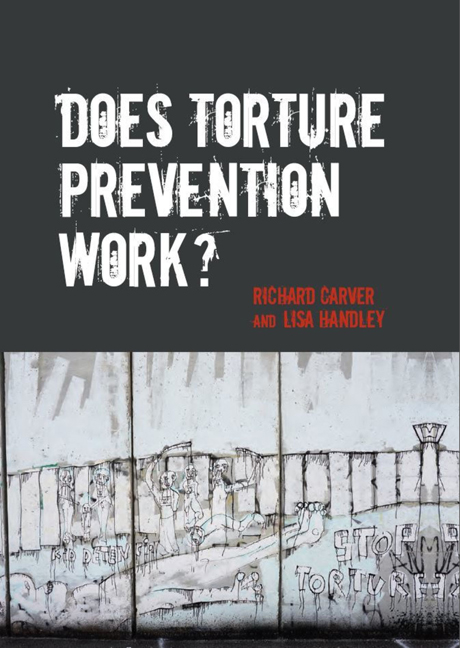Book contents
- Frontmatter
- Contents
- List of Tables
- List of Figures
- Foreword
- Acknowledgments
- Contributors
- 1 Introduction
- Overview and Findings
- Prevention Sustained
- Prevention Stalled
- 6 Hungary
- 7 Indonesia
- 8 Israel
- 9 Peru
- 10 South Africa
- Prevention Expected
- Prevention Denied
- Conclusion and Future Strategies
- Bibliography
- Index
8 - Israel
from Prevention Stalled
- Frontmatter
- Contents
- List of Tables
- List of Figures
- Foreword
- Acknowledgments
- Contributors
- 1 Introduction
- Overview and Findings
- Prevention Sustained
- Prevention Stalled
- 6 Hungary
- 7 Indonesia
- 8 Israel
- 9 Peru
- 10 South Africa
- Prevention Expected
- Prevention Denied
- Conclusion and Future Strategies
- Bibliography
- Index
Summary
In the last 30 years, the use of torture by Israeli authorities in Israel and the Occupied Palestinian Territories (OPT) has been subject to some dramatic changes and significant trends. Most are attributable to a controversial ruling in 1999 by the High Court of Justice (HCJ) that outlawed methods of torture but simultaneously facilitated their legalization.1 This chapter examines the political and legal context in which torture has occurred, the various mechanisms that enable or prohibit torture and their development over time, and possible correlations between these mechanisms and torture's continued occurrence.
The chapter starts by providing background information on the political circumstances in which torture occurs in Israel and the OPT2 and reviews important political developments that took place between 1985 and 2014. It goes on to analyse two milestones in the history of torture in Israel: the Landau Committee report of 1987, and the HCJ ruling of 1999. Subsequently, it presents relevant data and estimates the frequency of torture in the years covered by the study, and evaluates the effect of different mechanisms developed to prevent torture, or their absence. Finally, it offers some insights into the way that torture is dealt with by the law, and managed, regulated, and enabled by means of unique legal constructs.
Israel and the OPT: background
Israel occupied the Palestinian territories during the 1967 war, during which it conquered the Sinai Peninsula, the Golan Heights, the Gaza Strip, and the West Bank of the River Jordan, including the Old City of Jerusalem and its sites sacred to Muslims, Jews, and Christians. The Sinai Peninsula was returned to Egypt under a peace treaty signed by Egypt and Israel in March 1979. The other territories occupied since 1967 remain under some form of Israeli control and are covered to some extent by Israeli sovereignty and legal logic, though they each have a different legal and political status.
- Type
- Chapter
- Information
- Does Torture Prevention Work? , pp. 273 - 298Publisher: Liverpool University PressPrint publication year: 2016



